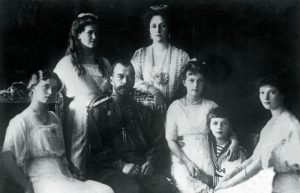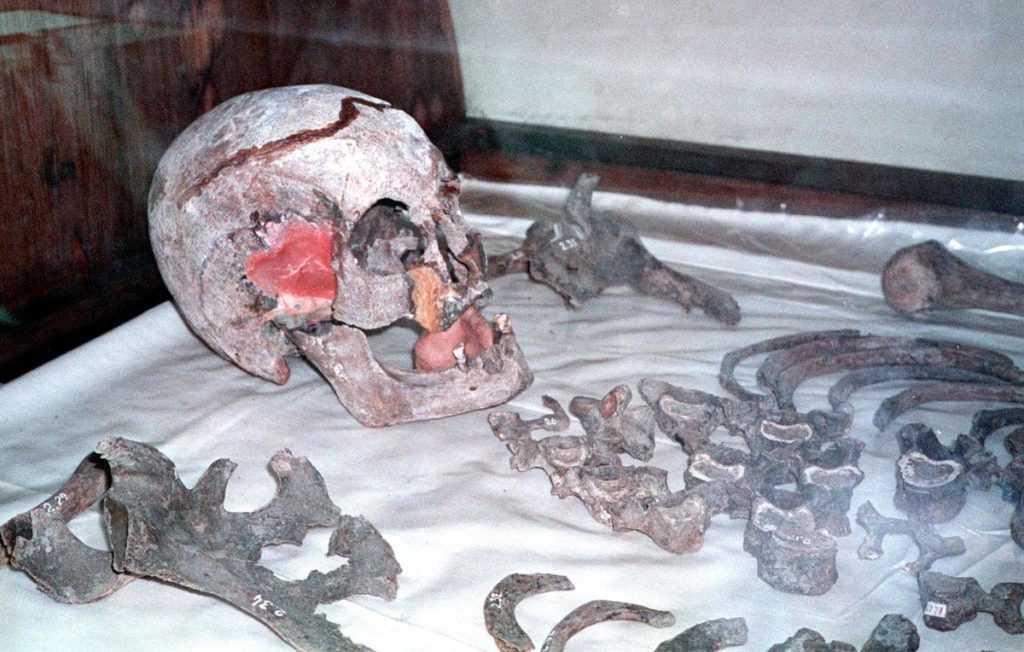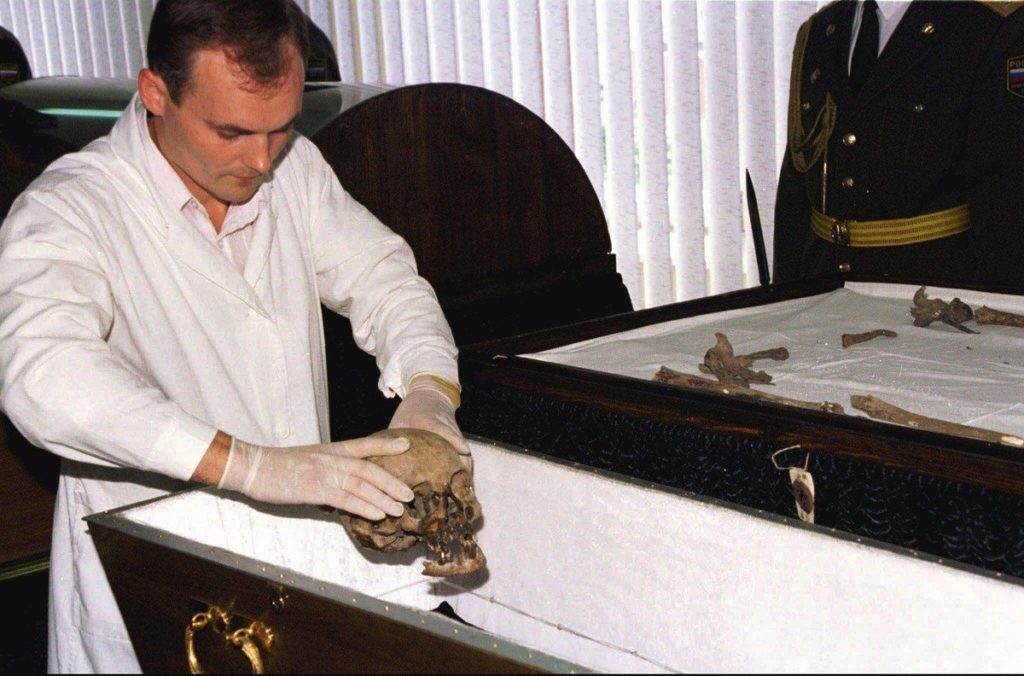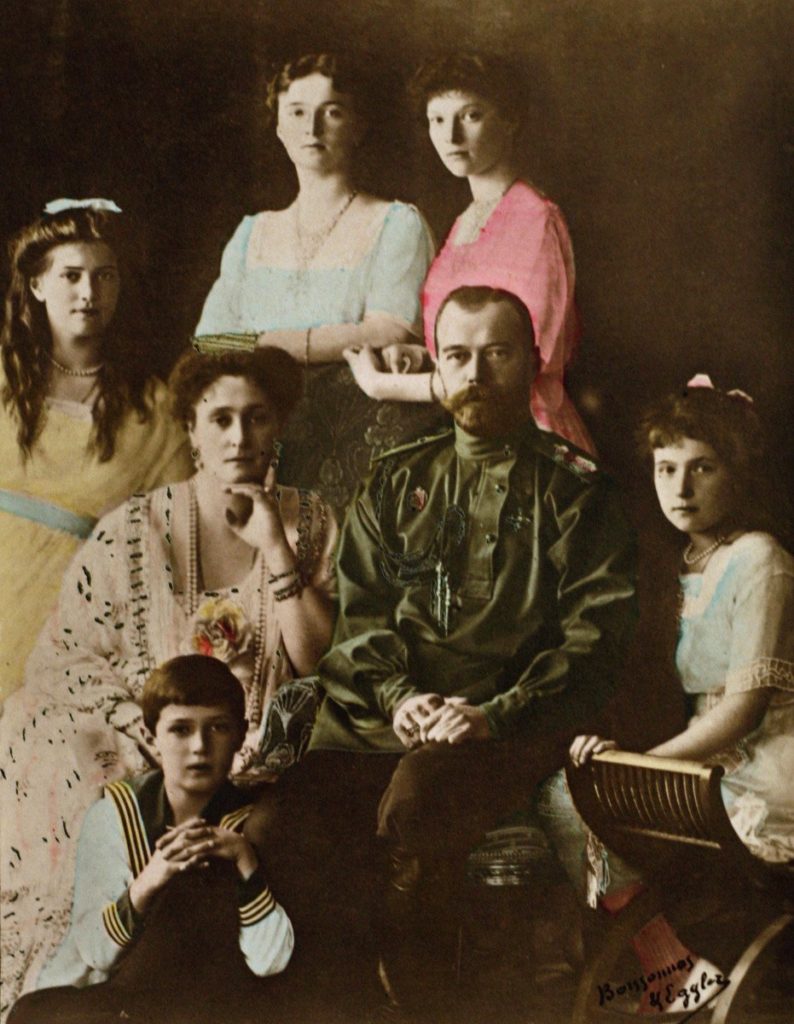
Source: Arab News
MOSCOW: Next week’s centenary of the execution of Russia’s last tsar has reignited a long-running conflict between the state and the Russian Orthodox Church over what to do with the murdered royal family’s remains.
Orthodox Patriarch Kirill on Monday will lead a procession marking 100 years since the Bolsheviks shot dead tsar Nicholas II and his family after he abdicated.
But the Church — dominated by hard-liners — is still divided over the authenticity of the remains of the family, whose members were all sainted in 2000.
Bolshevik forces shot Nicholas, his German-born wife Alexandra and their five children along with a maid, cook, valet and doctor in 1918, in the aftermath of the revolution.
The state plans no official commemorations of the historical landmark.

In 1998, then-president Boris Yeltsin’s government buried bone fragments, first found in 1979, that were identified as those of Nicholas, his wife and three of their daughters. But 20 years later, the Church still refuses to accept DNA tests confirming their authenticity.
It also does not recognize the remains of the tsar’s other children Alexei and Maria, whose bodies were separated from the others and found in 2007. The government has failed to reach an agreement with the Church on burying them.
Instead, the Church maintains that the Bolsheviks put the burnt bodies of their 11 victims in a pit in a forest in the Urals region, where the Church has built a large monastery complex.
But ahead of the centenary, some Russian newspapers are asking when Patriarch Kirill will finally recognize the remains.
In 1998, the late Patriarch Alexei snubbed a state funeral for Nicholas II’s bones in Saint Petersburg’s Peter and Paul Fortress. He sent a bishop to bury them as “unknown remains” instead.
Officially, the Patriarchate said there was not enough evidence to accept DNA test results and accused the government of sidelining the Church.
“Nobody really knows what happened because everyone who was involved is no longer here,” said Ksenia Luchenko, an expert on the Russian Orthodox Church, commenting on the dispute.
She speculates that tensions could stem from a “personal conflict” between Church and state officials.
Liberal-leaning priest Andrei Kurayev told AFP the Church opted to believe a version of the killings favored by anti-Bolshevik forces during the Civil War in the wake of the revolution.

“Over 20 years, it has grown into a huge conspiracy theory,” Luchenko said.
One version says Soviet Union founder Vladimir Lenin kept Nicholas II’s head in his office, another that the tsar’s youngest children, Alexei and Maria, somehow survived and lived abroad.
Last autumn, Tikhon Shevkunov — the senior cleric put in charge of the Church investigation who is reportedly close to President Vladimir Putin — raised the possibility of a “ritual killing,” implying that Jews murdered the ex-tsar. He denied anti-Semitism.
Father Kurayev said such interpretations are common inside a Church now dominated by ultra-conservatives.
“Church circles that had good relations with science were sidelined after the Pussy Riot scandal” in 2012, he said, referring to Russia’s jailing of two punk activists over an anti-Putin stunt in a Moscow church.
The case was a huge boost for the Church, and its radical wing has been growing stronger “by the day” since, Kurayev said.
Patriarch Kirill is “scared” of recognizing the remains, fearing a backlash from ultra-conservatives, many of whom have not forgiven him for shaking hands with Pope Francis in 2016, Kurayev said.

Church issues — including the question of Nicholas II’s remains — have become “politicized” under Patriarch Kirill, said Roman Lunkin, a religion expert at the Russian Academy of Sciences.
Last year, “Matilda,” a Russian feature film about Nicholas’s pre-marital love affair with a ballerina, sparked a violent backlash from radical Orthodox activists.
“It showed that Nicholas II is a figure who can divide Orthodox society,” something the Patriarch wants to avoid, Lunkin said.
On the anniversary, the Patriarch will lead a procession to the monastery at Ganina Yama outside the city of Yekaterinburg just east of the Ural mountains.
“The problem is the Patriarch is leading the procession to a place that according to the modern investigation is not where they died,” Kurayev said.

Luchenko said Putin is “less interested” in burying the ex-royal family’s remains while his predecessor Yeltsin saw it as “personal repentance.”
Putin “does not worship Nicholas II. His heroes are Alexander III and Alexander Nevsky,” she said, referring to Nicholas II’s father and a 13th-century leader.
Nonetheless, she called the dispute an “uncomfortable situation” for Putin, who has positioned himself as a close ally of the Church.
“It somehow frustrates (the Kremlin),” she said, adding that authorities want to “draw a line under this situation.”
In 2015, at the Church’s request, Russia reopened its criminal investigation into the remains of Alexei and Maria, reportedly exhuming Alexander III. But three years on, no results have been announced.
“The Church has not formulated a position on the results of the investigation,” Patriarch Kirill said last November.
Father Kurayev accused the Church of not wanting to make the results public, suggesting they match previous tests.
“They made a mistake with the science and now they are reluctant to take a step back.”
